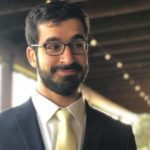If you grew up in the 80s or 90s, odds are you’ve seen this little Schoolhouse Rock ditty about how a bill becomes a law.
But one thing the artists behind the song didn’t account for was the role of special interest groups, and if a recent USA Today investigation is any indication, these groups exert enormous influence in the legislative process.
The investigation, in conjunction with The Arizona Republic and Center for Public Integrity, examined nearly 1 million bills in all 50 states and found that in the last eight years, more than 10,000 bills were introduced in statehouses around the country that were almost completely copied from bills written by special interest groups.
Virginia ranked fourth in the nation for passing the most of these “copycat model bills.” The General Assembly passed nearly 100 model bills since 2010, and indeed, most came from industry and conservative organizations.
As it stands, more than 2,100 of these 10,000 bills were eventually signed into law, with 1,151 of them coming from industry groups and 811 from conservative groups compared to only 142 from liberal groups.
The bills covered a wide variety of subjects from limiting access to abortion to restricting individuals’ abilities to sue asbestos companies to a bill that blocks cities from raising the minimum wage.
The process behind model bills is exactly what it sounds like. Someone – in this case, a special interest group like a think tank, corporation, or industry group – writes a bill, funnels it to state lawmakers around the country, and then advocates for them from the outside.
The benefit to these groups is clear, and for lawmakers, copying model legislation allows them to forge relationships with lobbyists and possible campaign donors while also giving them an easy way to put their name on finished products.
Gridlock in Washington D.C. has also contributed to the surge of model bills, forcing special interest groups to focus on statehouses. And focus they have – according to the report, these copycat bills touch nearly every area of public policy and drive the agenda in every statehouse in the nation.
According to the report, these bills are often drafted with misleading titles and descriptions to obscure their true goal. For example, the “HOPE Act,” which was introduced in nine states, was written by a conservative advocacy group and made it more difficult for people to get food stamps.
The investigation also found that these special interest groups intentionally create the illusion of expert endorsements, public consensus, or grassroots support. More troublingly, many of these copycat bills have been enacted to override the will of local voters and their elected leaders.
That said, not all model legislation is nefarious. Some bills required sex offenders to register with law enforcement while others increased penalties for human trafficking.
Right or wrong or bad, both conservatives and progressives agree that it’s simply the new normal. But progressive groups have not had nearly the same success as conservative groups at passing model legislation – something that conservatives argue is a result of Democrats’ failure to develop relationships between lawmakers and special interests.
For many progressives, though, avoiding special interests is the whole point. While Republicans eagerly line up to work with special interests and accept their donations, more and more Democrats are refusing to take PAC or special interest money.
Even in Virginia, several Democratic delegates who are up for re-election have refused corporate money, and the issue is likely to play a factor in this year’s General Assembly elections.
No matter what, it seems as if it’s about time that Schoolhouse Rock update its song for the 21st century – a century in which special interests are in the driver’s seat.
Politics

Democratic shakeup in Virginia primaries for governor, lieutenant governor
Richmond Mayor Levar Stoney quit his bid for governor and jumped into the race to be the Democratic nominee for lieutenant governor. The race for...

New Biden rule protects privacy of women seeking abortions
Under the new rules, state officials and law enforcement cannot obtain medical records related to lawful reproductive health care with the goal of...
Local News

Virginia verses: Celebrating 5 poetic icons for National Poetry Month
There’s no shortage of great writers when it comes to our commonwealth. From the haunting verses of Edgar Allan Poe, who found solace in Richmond's...

Join the fun: Recapping Family Literacy Night’s storybook adventures
When’s the last time you read a book aloud with a loved one? If it’s difficult to answer that question, then maybe it’s time to dust off that TBR...





